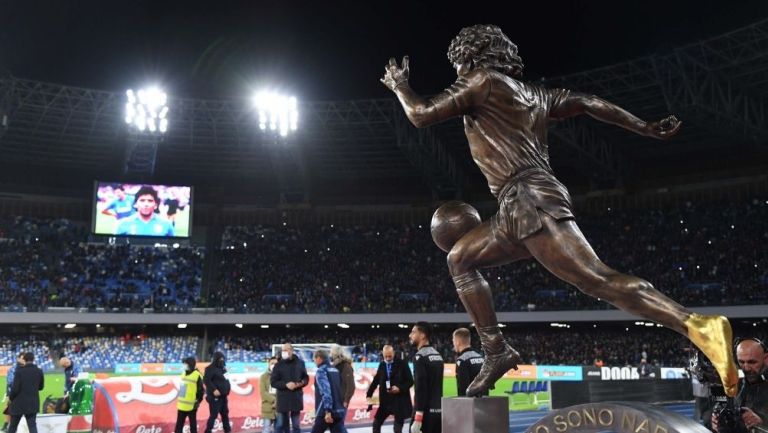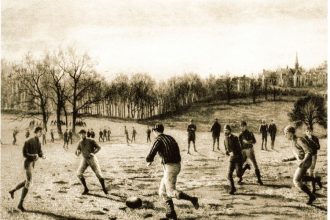The penalty shootout between Argentina and Italy in the semi-finals of the 1990 World Cup is considered to be one of the most intense and dramatic moments in the tournament’s history. The match had ended in a goalless draw after extra time, forcing the teams to decide the winner through a penalty shootout.
Italy had taken the lead with the first penalty, but Argentina quickly equalized with their second penalty. The shootout then went back and forth, with both teams converting their penalties until it was tied at 3-3. Italy’s fifth penalty taker, Roberto Donadoni, missed his kick, giving Argentina a chance to win the shootout.
Up stepped their talismanic captain and star player, Diego Maradona. With the weight of a nation on his shoulders, Maradona calmly slotted the ball into the bottom corner of the net, sending the Argentina fans into a frenzy of celebration. Italy still had one more penalty to take, but when their final penalty taker, Aldo Serena, missed the target, Argentina were through to the final.
The moment is often remembered as a triumph of Maradona’s nerves and skill under pressure, as he stepped up to take the crucial penalty with all the world watching. It is also a testament to the bond between Maradona and the Argentine people, as he became a national hero for his performances in the 1990 World Cup. But it was the prayer of the people of Naples that won Maradona.
Diego Maradona, arguably the greatest footballer of all time, had a special relationship with the Italian club Napoli that can be described as nothing short of love. Despite playing for only seven seasons with the club, Maradona managed to leave an indelible mark on the city of Naples and the club, which still resonates with fans to this day.
Maradona joined Napoli in 1984 when the club was struggling in the lower half of Serie A. However, with Maradona’s arrival, Napoli’s fortunes changed drastically, and they went on to win their first-ever Serie A title in the 1986-87 season. Maradona was the driving force behind Napoli’s success, scoring 81 goals in 188 appearances for the club and leading them to two Serie A titles, the UEFA Cup, and the Italian Cup.

But it was more than just Maradona’s on-field performances that endeared him to the Napoli fans. He became a symbol of hope and pride for the people of Naples, a city that was often neglected by the rest of Italy. Maradona was embraced by the locals, who saw him as one of their own, and he reciprocated their love with equal measure. He immersed himself in Neapolitan culture, learned the local dialect, and even started a charity to help underprivileged children in the city and became the God of Naples.
Maradona’s love for Napoli was evident on the pitch, where he played with a passion and intensity that was unmatched. His performances in the blue shirt of Napoli were often breathtaking, and he scored some of the most memorable goals in Serie A history, including the famous “Goal of the Century” against England in the 1986 World Cup.
The bond between Maradona and Napoli was tested in 1991 when he was handed a 15-month suspension for failing a drug test. Many clubs would have cut ties with a player in such circumstances, but Napoli stood by Maradona, and the fans continued to support him. When he returned to the club after his suspension, the fans welcomed him back with open arms, and he continued to play at the highest level until his departure in 1992.
Maradona’s love for Napoli was reciprocated by the club’s fans, who continue to hold him in high esteem to this day. Even after his passing in 2020, Napoli fans gathered outside the Stadio San Paolo, the club’s home ground, to pay their respects to their hero.
In conclusion, the love between Napoli and Diego Maradona was a special bond that transcended football. Maradona’s impact on the club and the city of Naples is still felt today, and his memory will forever be etched in the hearts of Napoli fans around the world.






